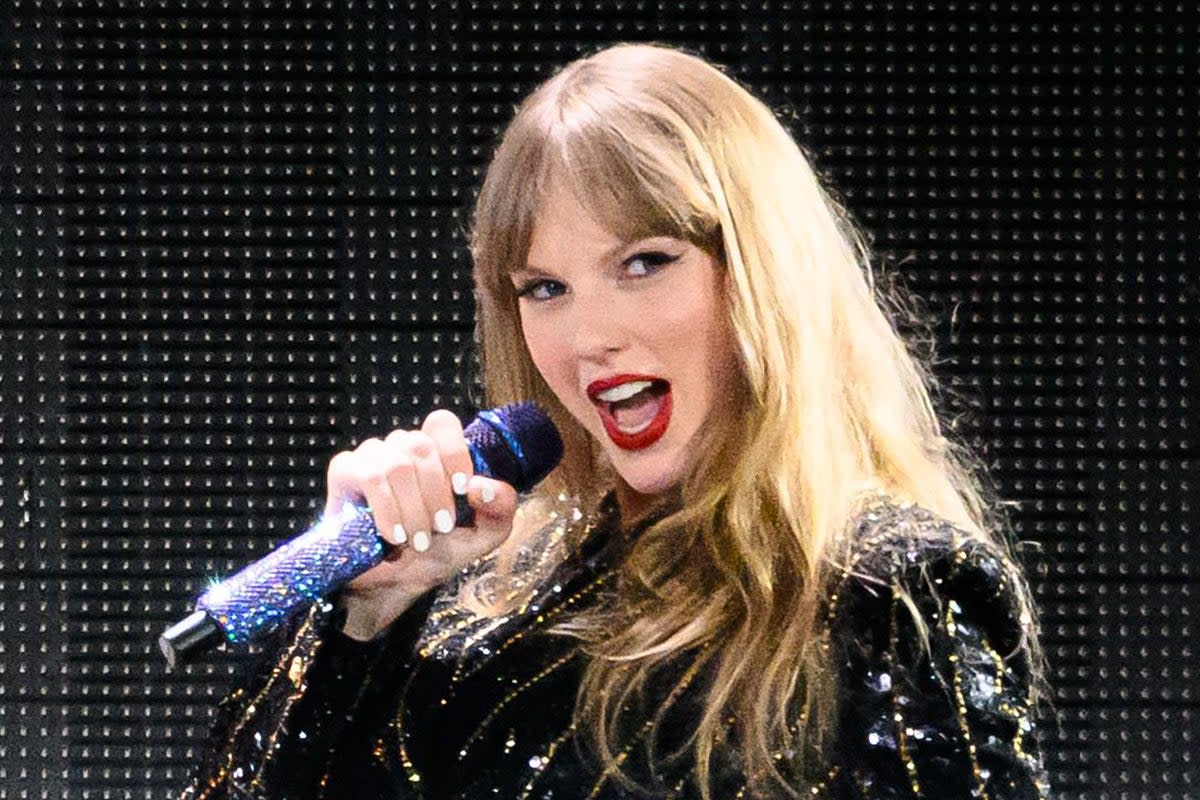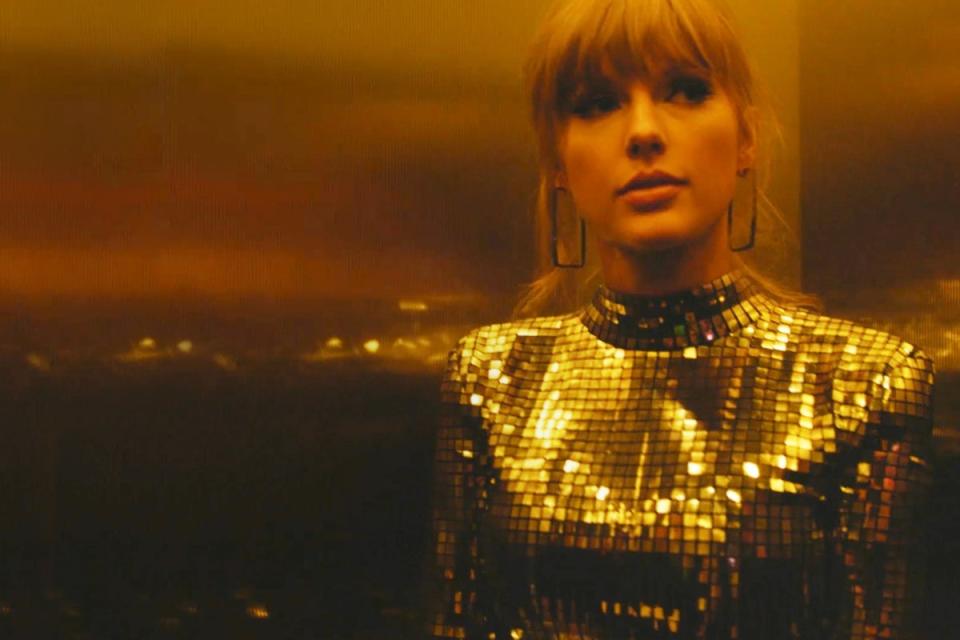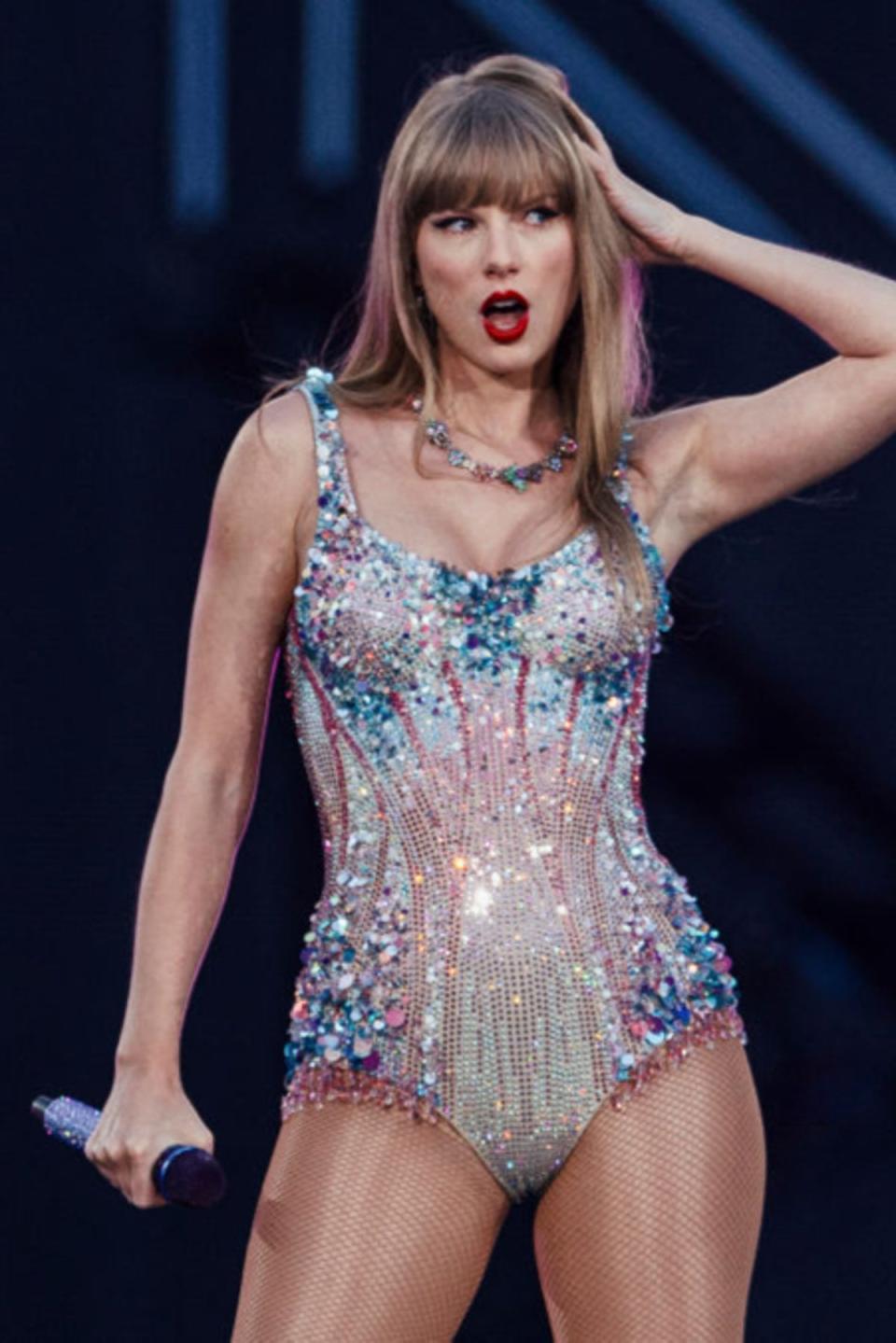I used to be a musical contrarian – now I’ve become an unlikely Swiftie

I have a big fat confession to make. After a lifetime of eschewing the mainstream, I’ve become an unlikely Swiftie, and I have my 11-year-old daughter to thank for it.
If you’d told me 10 years ago that I would get swept up in Taylor Swift mania at the very peak of the pop star’s global dominance, I would have shaken my head disdainfully. I was a contrarian; a forever surly teen who only relatively recently grew up enough to openly enjoy firework displays without cringing at all the oohing and ahhing. I was a shy outsider with a preference for scrotty, small music venues. But when my daughter, now almost 12, started playing the Swift classic “Shake It Off” around the house a year or two ago, I found myself appreciating what this woman was singing. (Haters gonna hate, slutshame and all the rest, but I’m just gonna shake it off, and do what the hell I want and need, essentially.)
I definitely didn’t only start liking Swift’s music because I wanted to be down with my kid (this is absolutely impossible, which all parents must accept). In fact, as a protective parent – and I wish I didn’t have this fuddy-duddy reaction as much as I do – I’m just as likely to skew quietly cautious of what she’s consuming. But with Swift, the opposite happened.
Her music has unexpectedly become a cultural gift for me and my daughter, who is perched precariously at the cusp of being big enough to start living all that is alluded to in her best songs. It’s a gift partly because the music is simply something we can bond over as her focus lurches towards the world outside of home. Growing up is hard, but with Swift’s songs around, it’s easier to pick yourself up and dust yourself down.
Late last year I took my daughter to the cinema to see Swift’s concert film, The Eras Tour (where a random woman fumbled through the darkness to hand her a friendship bracelet and I was secretly miffed I wasn’t offered one). A school friend recently taught her the piano chords to Swift’s 2020 track “Champagne Problems”, which she taught me as soon as she got home. We are now addicted to singing and playing it together. I love that song – it has the wistful small-town sadness I first cherished in Fountains of Wayne’s “Hackensack”, albeit from a different POV.
Last month, the Friday that Swift’s album The Tortured Poets Department dropped, I jumped out of bed like it was Christmas morning, gathered up my daughter and over breakfast we listened. I can’t explain why this event made me cry, but I found myself having to get up and busy myself with my back to the room. No one needs to see my flushed, water-logged face while they’re getting ready for school.

Listening to Swift together is also a means for us to talk about life while avoiding excruciating parental sermons. I try not to say too much, but I’m there for questions about lyrics my daughter is curious about. I’m not saying Swift is the ultimate role model – that’s not her job, anyway. But having grown up in a world in which the teenage boys got to choose the music and make all the noise while lairy builders got to dish out all the unsolicited approval, I respect how Swift has charted her journey to rising above and calling out all that grin-and-bear-it, good-girl bull. Sure, she is a marketing machine as well as an artist – her campaigns are carefully crafted and pervasive – and I could be cynical about that if I wanted, but if something speaks to me, why dismiss it because it’s successful?
I might have done that if it wasn’t for my daughter, but it’s surprisingly liberating to finally be able to embrace the mainstream. I am not ashamed to say I was fascinated and moved by Swift’s 2020 Netflix documentary, Miss Americana, filmed during a tumultuous period in which she toured her polarising 2017 album Reputation and took her first tentative steps into politics. I found it to be a tale of resilience, about how standing up for what you believe (she also fought and won a series of legal battles over a sexual assault) and generally caring less about having everyone like you actually pays off in myriad ways, from making even more honest and compelling art to hating your body less.
There are plenty of positive feminist messages. I love how I can show my daughter a beautiful clip of Chimamanda Ngozi Adichie telling female students to “forget about likeability,” and the idea that, “you’re supposed to twist yourself into shapes to make yourself likeable, that you’re supposed to hold back, don’t quite say, don’t be too pushy”. (I had to turn away and busy myself for a moment during this, too.) And then we can listen to the gloriously irritated lyrics of Swift’s “But Daddy I Love Him”, which appear to be addressing a certain strata of Swift’s so-called adoring public that likes to cast judgement on her romantic choices: “I’ll tell you something right now/I’d rather burn my whole life down/Than listen to one more second of all this griping and moaning/I’ll tell you something about my good name/It’s mine alone to disgrace/I don’t cater to all these vipers dressed in empath’s clothing.” And we can revel in her fearless fury.

As a parent, I also love how sweary the latest album is. Swearing can be empowering – just ask the scientists. I have cursed with guttural glee since primary school (where I was officially “best swearer”), so it’s been a struggle living with small children who are taught that using “strong words” is practically a sin, to the extent that mine were horrified if my innate bad language ever surfaced in front of them. But now The Tortured Poets Department has finally helped my daughter see it’s not only evil mum who swears and that what I’ve been telling her about most adults swearing all the freaking time is true. (This could eventually be her gateway to other sweary female artists like Jenny Lewis, Lana del Rey, or my favourite, Self Esteem aka Rebecca Lucy Taylor.)
Perhaps, thanks to Swift, my daughter will grow up in a world in which burly men won’t dare say “pardon my French” if they accidentally eff in her vicinity, as though to protect a delicate and pure petal of a person, but really to infantilise her. I sincerely hope Swift isn’t holding back the F-bombs in the all-new Tortured Poets section of the Eras tour, which kicks off its UK leg next week. Either way, though, the works of Taylor Swift are bringing me and my daughter joy, and this has been a brilliant surprise.


